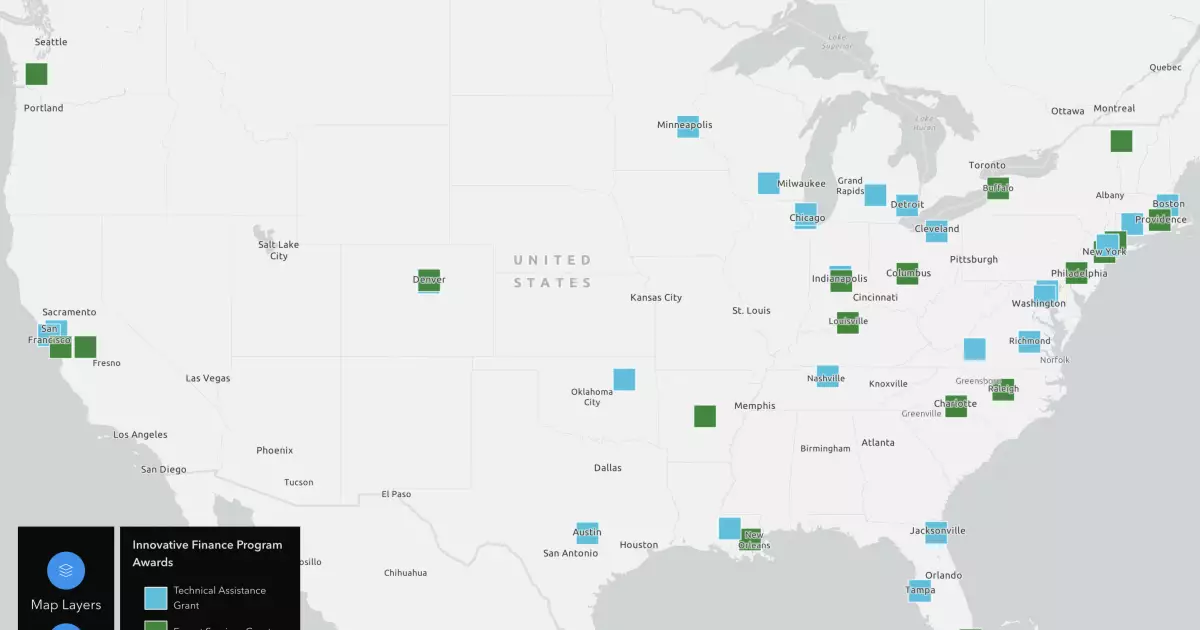In the realm of infrastructure financing, the U.S. government has taken substantial steps towards fostering collaboration between public entities and private investors. Under the 2021 Infrastructure Investment and Jobs Act, the Innovative Finance and Asset Concession Grant program has become a pivotal initiative aimed at encouraging local and state governments to systematically assess their assets. By ideating potential monetization strategies through public-private partnerships (P3s), this program opens new avenues for infrastructure development, particularly in transportation and urban planning.
Funding Allocation and Objectives
Recently, the U.S. Department of Transportation (DOT) announced the distribution of nearly $50 million in funding to 45 public entities. These grants, while modest—averaging around $1 million each—are intentionally designed to catalyze deeper investigations into asset inventories and P3 opportunities across the nation. According to Morteza Farajian, the executive director of the Build America Bureau, the program aims to simplify the process for developers by creating a national inventory of public assets. This makes it easier for stakeholders to identify and utilize available resources effectively.
A striking characteristic of the project submissions is the heavy prevalence of transit-oriented development (TOD) initiatives, with over 70% of the projects focusing on this aspect. This emphasis aligns with broader urban planning trends that prioritize sustainable living solutions. As Transportation Secretary Pete Buttigieg noted, the grants will facilitate quicker implementation of projects aimed at enhancing housing opportunities and public services while simultaneously promoting healthy partnerships with the private sector.
Types of Grants and Their Impact
The program categorizes its funding into two main streams: technical assistance grants and expert services grants. The former aids governments in developing or evaluating asset concession proposals for TIFIA-eligible projects, while the latter focuses on supporting project development by enabling local entities to engage professional services. This dual approach not only strengthens local capacities but also encourages innovative project conception that can leverage diverse financial opportunities. The results are expected to be transformative, allowing for strategic developments that enhance community infrastructure.
The successes highlighted by the first round of grants underscore the promise of this program. For example, the Capital Metro in Austin plans to deploy $1 million to initiate an “equitable TOD pilot site,” an ambitious step towards more inclusive urban development. Meanwhile, North Miami’s allocation of $1.75 million signifies a commitment to revitalize the city’s downtown through a thoughtful mix of housing and commercial initiatives. These projects are not only critical for local economies but also serve as models for other municipalities considering P3 approaches.
The Innovative Finance and Asset Concession Grant program signifies a strategic pivot in how local and state governments approach infrastructure development. By fomenting collaboration between the public sector and private enterprises, it sets the stage for innovative financing models that respond to community needs. As the program continues over the next five years, it is poised to reshape the landscape of public infrastructure, demonstrating that smart partnerships can lead to enhanced urban sustainability and economic vitality. Thus, the future prospects of P3s look promising, heralding a new era of collaborative governance in the pursuit of public good.

